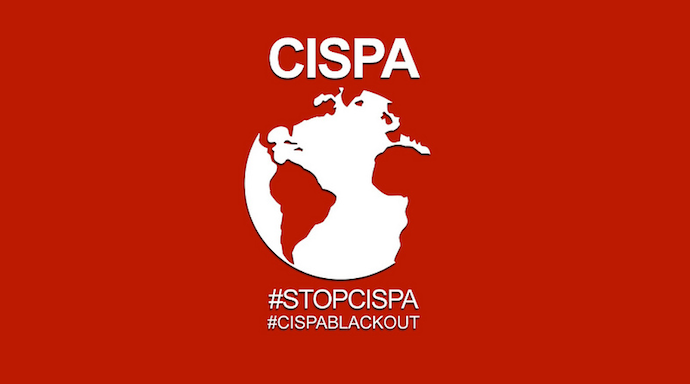CISPA: A Senate Vote Away From ‘Big Brother’

Image via Flickr/ Mondo Tiki Man
Score one for Big Brother. A last-minute amendment to the Cyber Intelligence Sharing and Protection Act (CISPA) that would have prevented employers from requiring prospective employees to disclose their social media passwords as a condition of employment was voted down in the House of Representatives in a 224-189 vote. Rep. Ed Permutter (D-Co.) proposed the provision, warning fellow legislators of serious privacy breaches.
“This is a very simple amendment that really does two things,” Perlmutter told the House Thursday, before the vote. “It helps the individual protect his right to privacy and it doesn’t allow the employer to impersonate that particular employee when other people are interacting with that person across social media platforms.”
CISPA sponsor Mike Rogers (R-Mich.), however, called the amendment an attempt to kill the bill, a claim Perlmutter denied. Still, Rogers suggested the issue of employee privacy would be better addressed in separate legislation—an interesting theory, considering Perlmutter has already unsuccessfully tried to introduce the measure three times, beginning in 2011.
“People have an expectation of privacy when using social media like Facebook and Twitter,” Perelmutter said in a 2011 statement. “They have an expectation that their right to free speech and religion will be respected when they use social media outlets. No American should have to provide their confidential personal passwords as a condition of employment. Both users of social media and those who correspond share the expectation of privacy in their personal communications. Employers essentially can act as imposters and assume the identity of an employee and continually access, monitor and even manipulate an employee’s personal social activities and opinions. That’s simply a step too far.”
Without Perlmutter’s amendment, CISPA passed the House 288 to 127 last week. And although the cybersecurity legislation is considered likely to die in the Senate—and President Obama has vowed to veto it should it cross his desk—CISPA is still causing quite a stir among civil liberties groups. The bill would allow the US government and private companies such as Facebook, Reddit, Microsoft and Google to share information with one another should they come under cyber attack. Critics of the bill, which already failed once in the Senate last year, say it would bypass existing privacy laws and allow companies to hand over users’ private information to the government.
Under CISPA, companies would be allowed to share four types of information with the government:
- A vulnerability of a system or network of government or private entity or utility;
- A threat to the integrity, confidentiality or availability of a system or network of a government or private entity or utility or any information stored on, processed on, or transiting such a system or network;
- Efforts to deny access to or degrade, disrupt, or destroy a system or network of a government or private entity or utility;
- Efforts to gain unauthorized access to a system or network of a government or private entity or utility, including to gain such unauthorized access for the purpose of exfiltrating information stored on, processed on, or transiting a system or network of a government or private entity or utility.
So while proponents of CISPA claim the bill is absolutely needed to protect the United States from cyber attacks, the bill authorizes an incredible variety of information to be shared, including data about Internet users, their communications and what types of files they upload. Furthermore, CISPA allows the information to be obtained in five circumstances:
- Cybersecurity
- Investigation and prosecution of cybersecurity crimes
- Protection of individuals from the danger of death or physical injury
- Protection of minors from physical or psychological harm
- Protection of the national security of the United States.
Basically, CISPA is incredibly broad, and that’s what worries privacy activists. What defines “cybersecurity threat?” It could be used for anything the government decides to apply it toward and ultimately violate citizens’ Fourth Amendment rights against warrantless acquisition of private data. Digital rights group The Electronic Frontier Foundation, for example, fears citizens will be subjected to constant government surveillance of their online activities.
“Hundreds of thousands of Internet users spoke out against this bill, and their numbers will only grow as we move this debate to the Senate,” EFF said in a statement. “We will not stand idly by as the basic freedoms to read and speak online without the shadow of government surveillance are endangered by such overbroad legislative proposals.”
Let’s hope this bill dies a painful death in the Senate and never shows its ugly face again, or we may soon become very well-acquainted with Orwell’s “Big Brother,” only about three decades late.









































